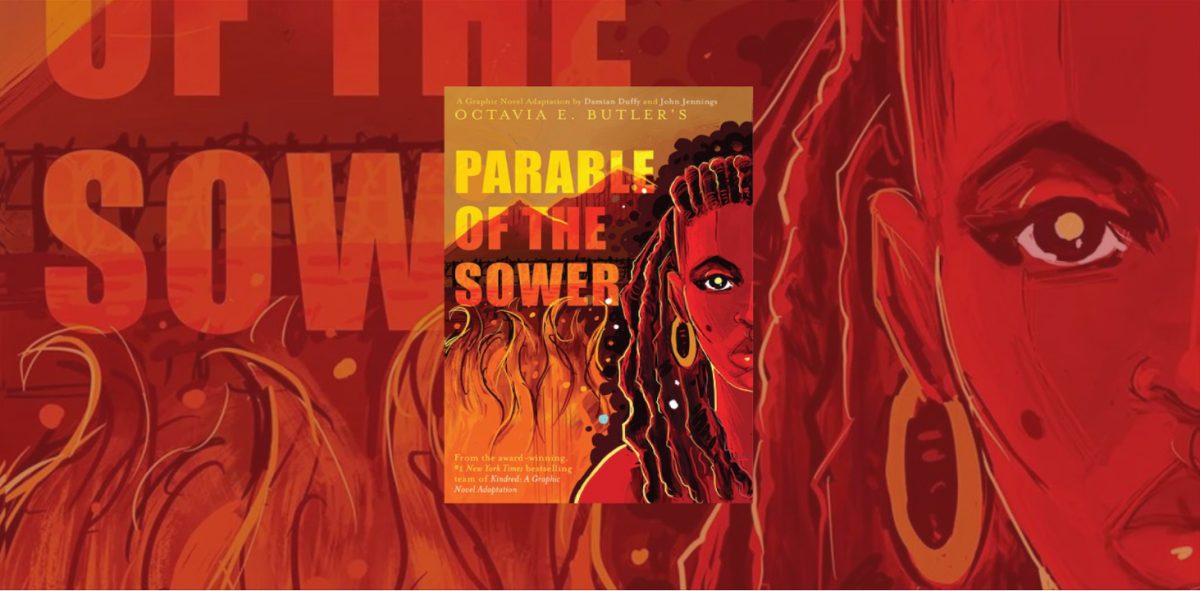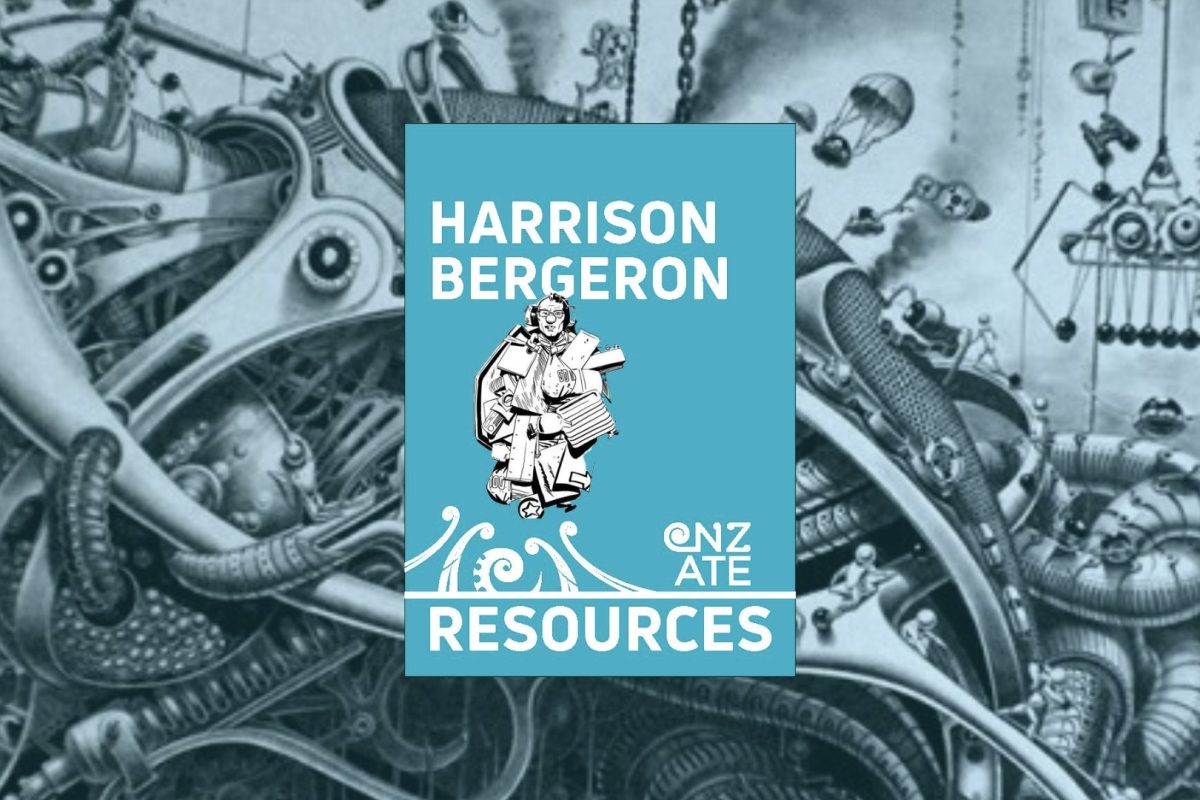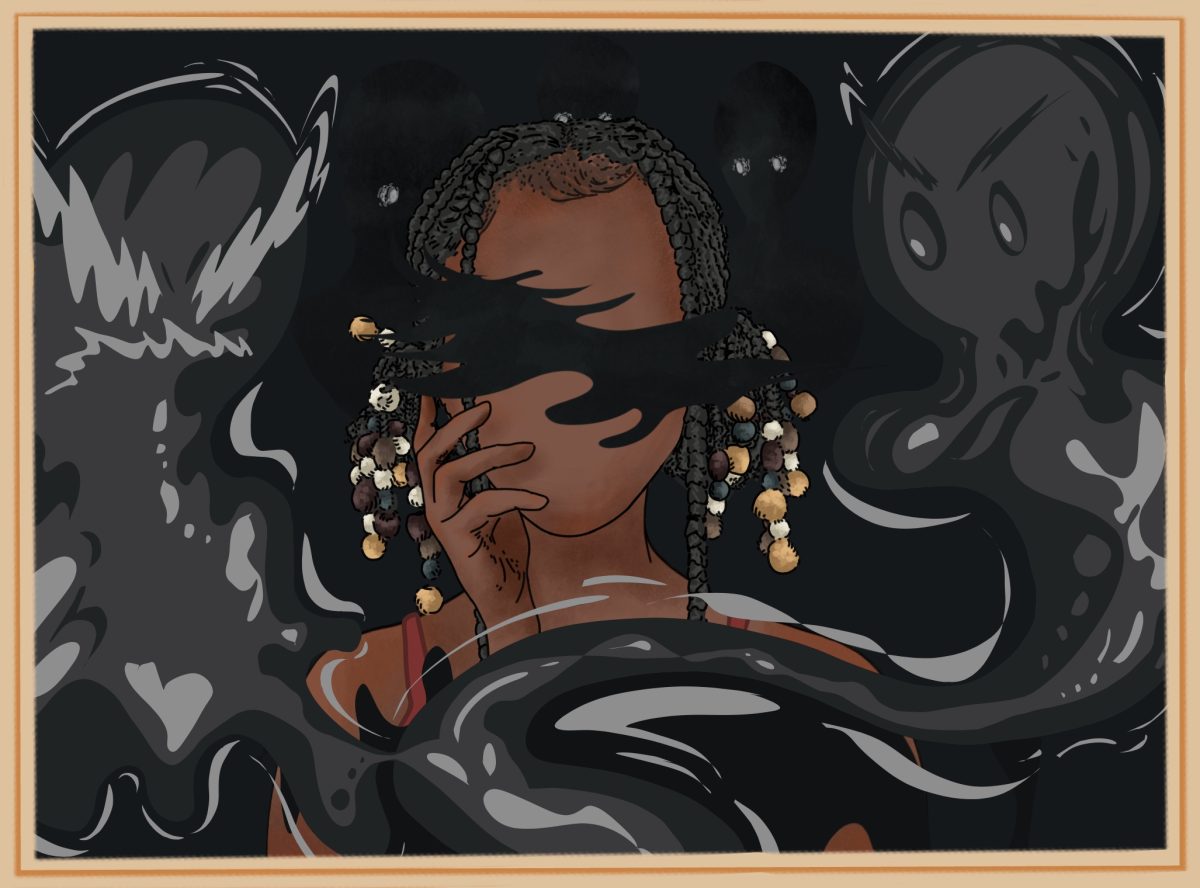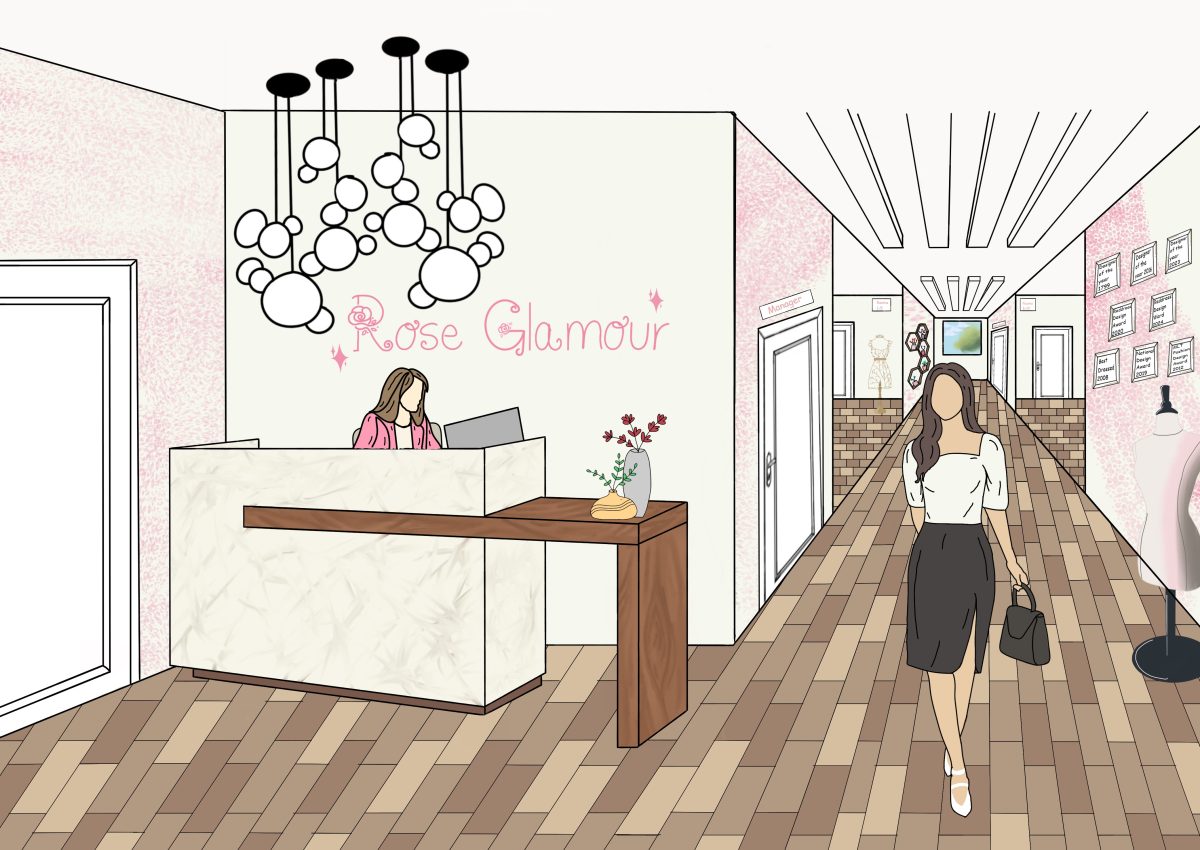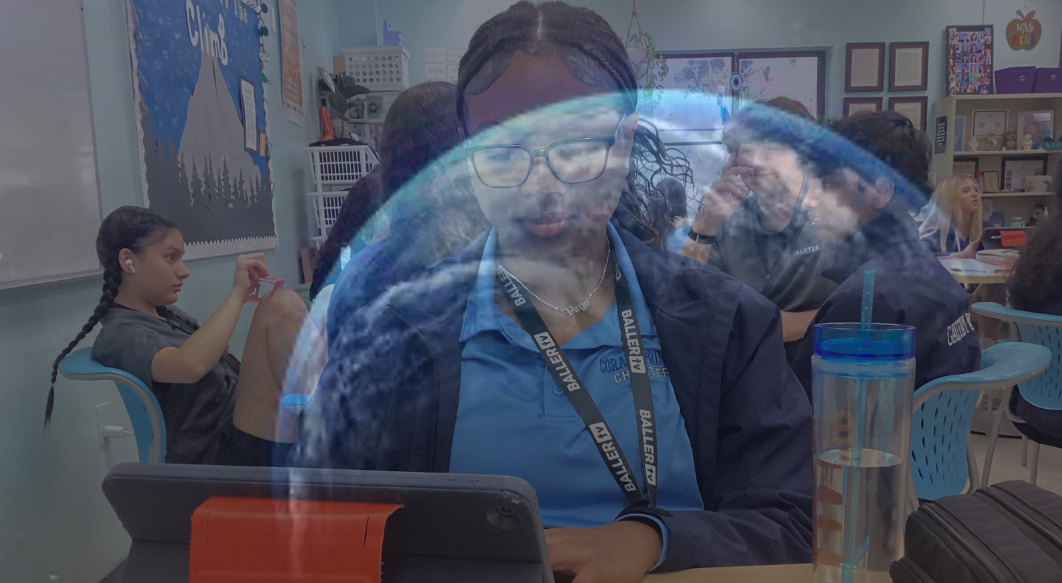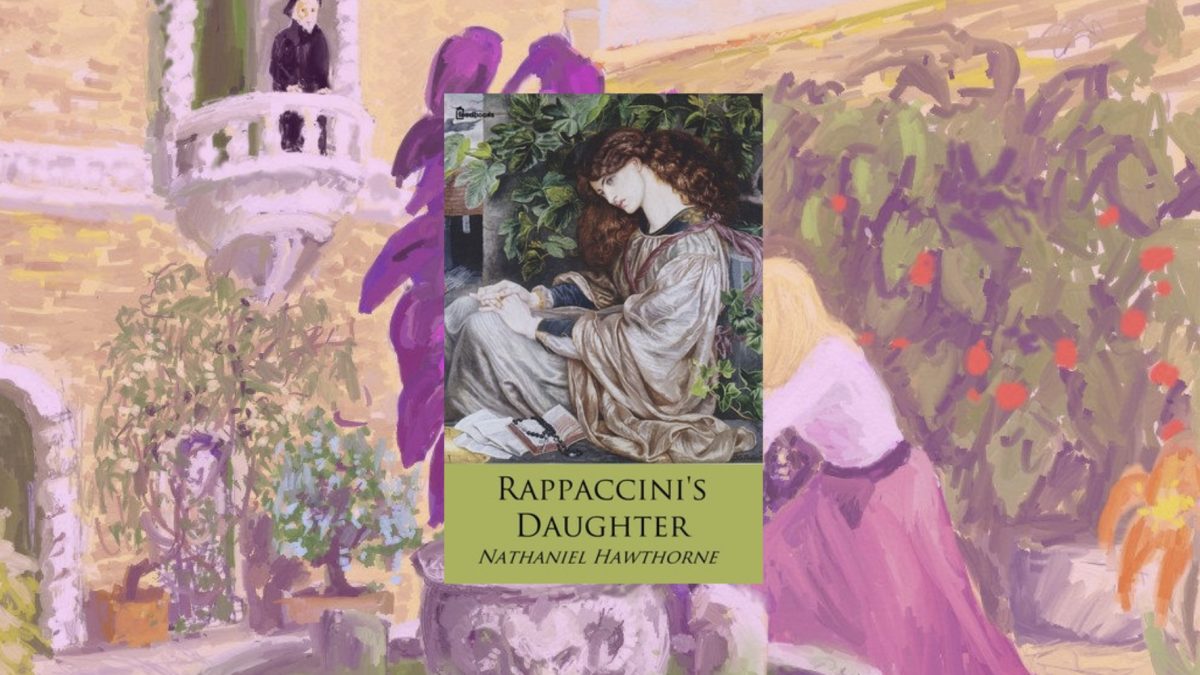In a world that is overcome by racism, gender discrimination, and a lack of overall equality, hope acts as a beacon to guide humanity towards a better future that is rooted in understanding and change. In Octavia Butler’s novel, “Parable of the Sower,” we see a future of what the world is to become if we fail to enact change. By embracing hope, we prepare the way towards a future where every person, regardless of their given race, gender, or background, can thrive in a world full of equality and sympathy. Through “Parable of the Sower,” Octavia Butler explores the intertwining themes of racism, gender, equality, and hope, which all together promote the concept of a better future for America.
The mesmerizing tale of “Parable of the Sower” is a science fiction that exhibits the consequences of the unchecked discrimination that the world currently faces, challenging its readers to question what they could be doing differently and how they can change. The novel by Octavia Butler, it is set in a realistic dystopian future and follows the story of a young woman named Lauren Olamina, taking place in a time where society has collapsed and is plagued by poverty, violence, and environmental destruction. Lauren is not an ordinary protagonist because she possesses the power to feel the emotions of individuals around her. This gift of absolute sympathy ultimately proves to be a burden as well as a catalyst for her journey. Lauren embarks on a voyage to find both survival and meaning, as she escapes her current hardships of her environment. Throughout her journey she develops a new form of religion known as Earthseed, which focuses on the power of change and the ability to find meaning in life. The creation of this belief system is heavily impacted and rooted by Lauren’s unique ability to feel the emotions of others. This emotional connection becomes a driving force in her mission to create a better world, where unity and understanding can transcend the chaos of the present. Overall, the story explores the complexities of human nature, and dives into the concepts of resilience, hope, and triumph in times when they are needed most.
Through her skillful storytelling, Butler masterfully illustrates a vivid picture of the experiences of marginalized communities. Butler exposes the harsh realities of a dystopian future, where racism remains a pervasive force, shaping society. Through the experiences of Lauren Olamina, as well as her community, she portrays the struggles of young African Americans dealing with and fighting against the effects of systemic discrimination. The community known as Acorn even promotes diversity to create a more inclusive environment. The fact that the novel promotes the idea of turning away from narrow mindedness and exclusive viewpoints shows how important embracing human diversity is in the path towards a better future. Lauren’s experiences of navigating through this hostile atmosphere shed light onto how deeply racial biases remain in America. She explains her frustration when she says “They don’t see me. They see a black face, a slave, someone they can kill or rape,” portraying the dehumanizing effect of racism, where people are reduced to stereotypes and stripped of their individuality. By placing a spotlight on this issue, Butler forces readers to confront the uncomfortable truths of racism and its impact on marginalized communities.
Alongside racism, Butler dauntlessly confronts the issue of gender inequality within the novel. In a world similar to our own, where the societal norm is traditional gender roles, Lauren challenges those norms, becoming a figure of empowerment for the women who surround her. However, this is not any easy task for Lauren, as she explains, “It’s like all my life I’ve been playing some kind of game but the rules keep changing.” Lauren’s frustration with the shifting gender dynamics illustrates the complexities of gender expectations and how they hinder women’s progress and limit their potential. Butler challenges the concept of traditional gender roles by depicting Lauren as a strong, intelligent, and independent character, subsequently emphasizing the abilities that women have in shaping the future of our world. Her unwavering determination and leadership qualities demonstrate the potential that women have in enacting and shaping possible change within the future. Promoting the notion that gender does not matter. Emphasizing that anyone can see the possibilities the world has to offer, and anyone can be a survivor. By challenging gender stereotypes and creating empowering female characters, Butler advocates for a more inclusive and equal society where women’s voices are not only heard but valued.
Attention is placed on the theme of equality through Lauren’s journey which ultimately leads her to the development of Earthseed. Butler explores the fundamentality of equality in the creation of a better future for America, where the nation is able to grow into a more stable system. Earthseed’s core principles elaborate upon this idea, as they revolve around complete unity and the concept of interconnectedness, emphasizing the instinctive worth of all individuals from all backgrounds. Failing to recognize people as equal can even be dangerous as, “People tend to give in to the seduction of the dichotomy. They try to categorize others as either friend or enemy,” reflecting the dangers that can arise through binary thinking, as it fuels conflict and divides our society. Butler emphasizes the importance of understanding and empathizing with diverse perspectives, ultimately encouraging the concept of unity and equality. Through equal thinking, we can create a society that is free from the repercussions of discrimination, where all people are treated with respect and granted equal opportunities to not just survive but thrive. Utopian ideals are being restricted due to the absence of forces to counter the dystopian trajectory which seems to prevail in all efforts, highlighting the self-destructive tendencies that humanity has. Leading them into a dystopian world, where due to their inclinations towards inequality, racism, etc., they have created a physical and emotional environment which is nearing upon inhabitable.
When living in a world where so many citizens must face inequality – gender or race – and discrimination around every corner, hope presents itself to be imperative. By introducing hope as a controlling force, we see how it can empower communities to combat all forms of discrimination. Lauren’s unique empathic abilities allow her to feel the suffering of others, sparking the creation of a revolutionary religion, referred to as Earthseed, serving as her foundation of inspiration of resilience and hope, as well as for those around her. Earthseed creates an irreplaceable base as their belief system is rooted in hope, representing how hope can be a driving force in creating a better future for America. Butler displays the immense power of hope in inspiring positive change in those who are currently unable to imagine a better future for themselves and their communities. Lauren represents a prime example as she explains, “I had to find some way to live with what had happened to me and still keep my dream alive.” In the face of adversity, Lauren uses hope to find resilience and determination, demonstrating that hope is not a passive emotion but rather a force that strongly encourages change and transformation. Lauren’s refusal to succumb to despair even after traumatic experiences exemplifies the power of hope. Through the experiences of Lauren’s hardships and her subsequent reaction of a relentless pursuit of hope, Butler encourages readers to embrace an ambitious sense of confidence even in the darkest of times because it is the only thing that will lead us to the light and a better future for the world.
In Octavia Butler’s “Parable of the Sower,” there are notions towards the impact of hope in the pursuit of an equal and sympathetic society. The story serves as a cautionary tale about the potential future consequences of ignoring the current societal issues revolving around racism, gender, and overall equality. By addressing these interconnected themes, society can progress towards a more inclusive and positive future. Butler employs the character of Lauren Olamina, a young black woman, as a lens through which these themes are explored. The story encourages readers to examine the consequences of allowing these issues to persist without considering the possible implications involved. By promoting the growth of hope and empathy, we can help to foster the dismantlement of systematic barriers and together help to rebuild a more inclusive world. A world where everyone is equal and holds the same opportunities. Overall offering readers a vague plan for a better future, promoting universal change, as well as the removal of current societal ideologies as a way to reach utopia. “Parable of the Sower” remains to be a powerful and timeless reminder of the indispensable power of hope and the cruciality of preserving fundamental human values.
Exploring racism, gender, equality, and hope in Octavia Butler’s “Parable of the Sower”
Leave a Comment
More to Discover
About the Contributor

Isabella Schuhmann, Social Media Manager
| Isabella is a junior. This is her first year on the Paw Print staff. She is a recycler for Environmental Club, a Senator for her class, as well as the Editor for the Key Club. In her free time, she enjoys photography, poetry, and writing. She aspires to attend Florida State University. |

